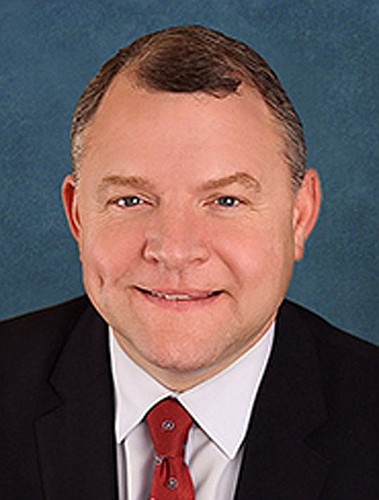
Florida patients may be able to vape or munch on medical-marijuana products but they almost certainly won’t be allowed to light up joints or take bong hits, under a compromise being worked on by House and Senate leaders.
Lawmakers are trying to reach consensus on a proposal to carry out a constitutional amendment, overwhelmingly approved by more than 70 percent of voters last fall, that legalized medical marijuana for patients with a broad swath of conditions.
House and Senate committees on Tuesday approved two different approaches to the amendment, which could make Florida one of the largest marijuana markets in the country when fully implemented.
But neither side has any intention of allowing the marijuana products to be smoked, despite repeated demands from numerous patients, caregivers and others who insisted that smoking provides some people with the best type of treatment.
Lawyer Michael Minardi accused the House Appropriations Committee of thwarting the will of voters who supported the constitutional change and, he said, supported smoking marijuana products.
“These are veterans. These are the elderly. These are seniors, and people with ALS or PTSD, who benefit and use cannabis in a smoked form. What you are doing here, by creating this legislation when 71 percent of the people support it, is going against their will,” Minardi, who specializes in marijuana law, said.
But Sen. Rob Bradley, a Fleming Island Republican who has shepherded marijuana-related legislation through his chamber for the past three years, told The News Service of Florida that smoking is off the table.
“There is agreement between the majority of the House and Senate that the smoking of cannabis is not an act that is consistent with a healthy life and not consistent with consuming medicine,” Bradley said.
Bradley moved the two chambers’ proposals farther apart late Tuesday when he allowed an amendment, sponsored by Miami Republican Frank Artiles, to be tacked onto his bill (SB 406) that would cap at three the number of dispensaries each medical-marijuana licensee could operate. Bradley said he would agree to the amendment but believed the number was too small.
“If there are no limits on the number of dispensaries, it would be very challenging, if ever, for there to be other entities to enter the market,” Senate Health and Human Services Appropriations Chairwoman Anitere Flores, R-Miami, said.
But Jim McKee, a lobbyist for San Felasco Nurseries, which is one of seven current medical-marijuana license holders in the state, argued that capping the number of dispensaries could have a negative impact on access to treatment for rural patients.
Having too few dispensaries would increase the number of patients, estimated to total about 500,000 in Florida, who would rely on home delivery for marijuana products, McKee said.
“Do we really want what could be up to 1,000 vehicles a day delivering cannabis throughout the state of Florida?” he said.
But Ben Pollara, campaign manager for the political committee that backed the amendment, said he supported a limit on the number of dispensaries each license holder could have because it would force lawmakers to grant more licenses and open up the market.
Allowing the license holders to open unlimited numbers of retail facilities will cause patients to “suffer the consequences of a state-mandated monopoly,” Pollara argued.
“The business of medical marijuana will operate like cable companies. You can pick from one of a handful of providers, and they are all expensive, poor in quality, and lacking in customer service, since they have a captive audience of consumers,” he said.
Bradley said later the number of dispensaries “probably does not produce nearly enough access and storefronts to make sure that everybody who needs medical marijuana gets it,” but the inclusion of the dispensary cap gives the Senate another bargaining chip in talks with the House.
The Senate committee overwhelmingly approved Bradley’s proposal, which has one more stop before heading to the Senate floor, with less than three weeks remaining before the legislative session ends.
Differences between the two chambers’ plans include how products can be consumed.
The House bill also bans vaporizing or edible marijuana products, an element House Majority Leader Ray Rodrigues, the bill’s sponsor, said could change.
Rodrigues, R-Estero, said vaporizing, or “vaping,” and edibles are part of negotiations with Bradley and could get folded into the House measure if the products could be accurately labeled.